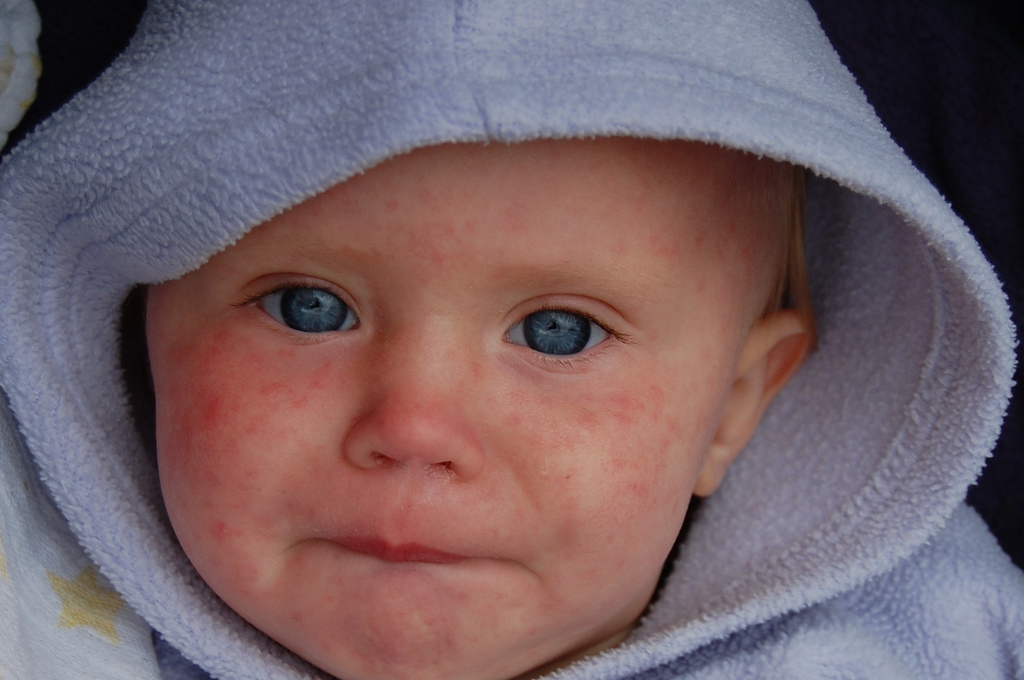The mandatory vaccination bill was adopted in 2017 on the initiative of the then Italian Minister of Health Beatrice Lorenzin. The law came into force last Tuesday. It requires that every child be vaccinated against ten major diseases upon entering kindergarten or school. They include measles, tetanus, diphtheria, hepatitis B, whooping cough, rubella, parotitis, chicken pox, hemophilic type b infection and polio.
The issue of vaccinations and compulsory immunization has been particularly hotly debated in Italy in recent months, especially since the country can in no way reach the goal set by the UN (95% vaccination coverage). This figure reaches 80% in Italy. In addition, in recent months, the number of cases of measles has increased dramatically in the country. According to the European Center for Disease Prevention and Control, in November last year in Italy there were 58 cases of measles, in December - 76, and in January - already 165 cases. And this is the highest rate in Europe after Romania.
Now that the law has entered into force, administration of preschool institutions has the right turn back an unvaccinated child or a child whose parents have not submitted relevant documents confirming that he has mandatory vaccinations. Schoolchildren aged 6–16 years of age cannot be prohibited from visiting school. However, those parents who violated the law will have to pay a fine of up to € 500.
According to Italian media, some children's institutions and regional authorities have already exercised the new rights. For example, the local authorities of Bologna sent letters on a temporary ban on visiting childcare facilities to parents of about 300 children who do not have a full set of vaccinations, and problems with documentary evidence of vaccinations were generally found in 5 thousand children. In the Venice region, 37 children were not allowed to go to school; there were such 16 children in Florence and Lucca, and three - in Naples. There are also many cases when parents tried to conceal the fact of lack of vaccinations in children, misleading the institutions.
The current Minister of Health of Italy, Giulia Grillo, notes that all parents had the time to vaccinate their children, as date of entry into force was even postponed from a holiday to a working day. Now, according to her, the rules are simple: "No vaccinations, no school." Antonello Giannelli, President of the National Association of Schools of Italy, adds that “the situation is very delicate and ambiguous, we are talking about public health, and the duty of educational institutions is to protect the most vulnerable children.” But he reassured parents: as soon as they submit certificates confirming that children have all the required vaccinations, they will be taken back to all educational institutions.
source: nytimes.com
The issue of vaccinations and compulsory immunization has been particularly hotly debated in Italy in recent months, especially since the country can in no way reach the goal set by the UN (95% vaccination coverage). This figure reaches 80% in Italy. In addition, in recent months, the number of cases of measles has increased dramatically in the country. According to the European Center for Disease Prevention and Control, in November last year in Italy there were 58 cases of measles, in December - 76, and in January - already 165 cases. And this is the highest rate in Europe after Romania.
Now that the law has entered into force, administration of preschool institutions has the right turn back an unvaccinated child or a child whose parents have not submitted relevant documents confirming that he has mandatory vaccinations. Schoolchildren aged 6–16 years of age cannot be prohibited from visiting school. However, those parents who violated the law will have to pay a fine of up to € 500.
According to Italian media, some children's institutions and regional authorities have already exercised the new rights. For example, the local authorities of Bologna sent letters on a temporary ban on visiting childcare facilities to parents of about 300 children who do not have a full set of vaccinations, and problems with documentary evidence of vaccinations were generally found in 5 thousand children. In the Venice region, 37 children were not allowed to go to school; there were such 16 children in Florence and Lucca, and three - in Naples. There are also many cases when parents tried to conceal the fact of lack of vaccinations in children, misleading the institutions.
The current Minister of Health of Italy, Giulia Grillo, notes that all parents had the time to vaccinate their children, as date of entry into force was even postponed from a holiday to a working day. Now, according to her, the rules are simple: "No vaccinations, no school." Antonello Giannelli, President of the National Association of Schools of Italy, adds that “the situation is very delicate and ambiguous, we are talking about public health, and the duty of educational institutions is to protect the most vulnerable children.” But he reassured parents: as soon as they submit certificates confirming that children have all the required vaccinations, they will be taken back to all educational institutions.
source: nytimes.com





